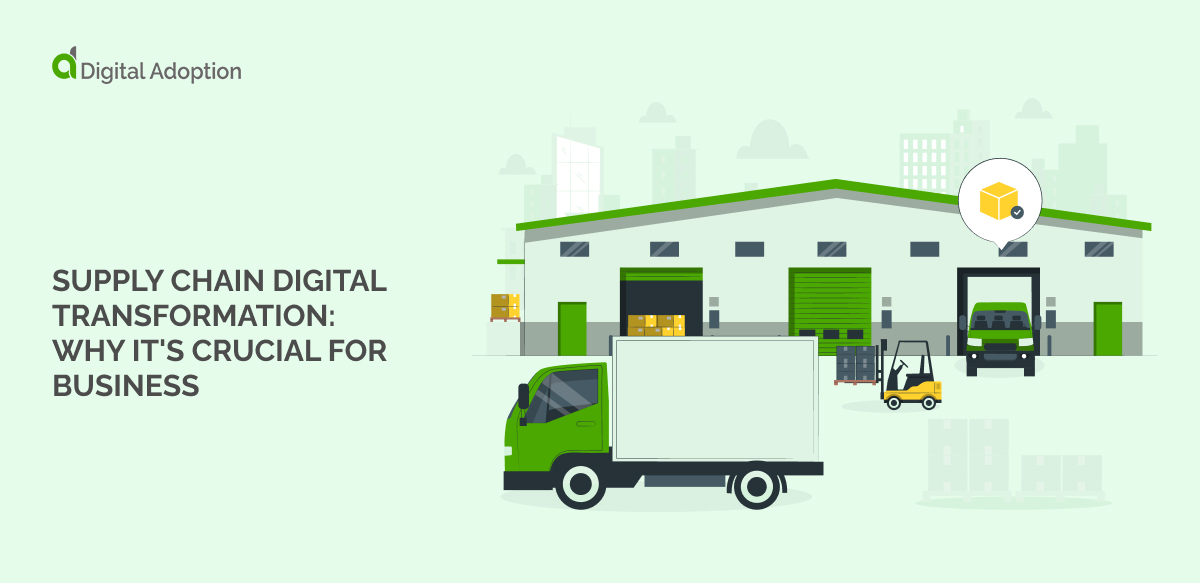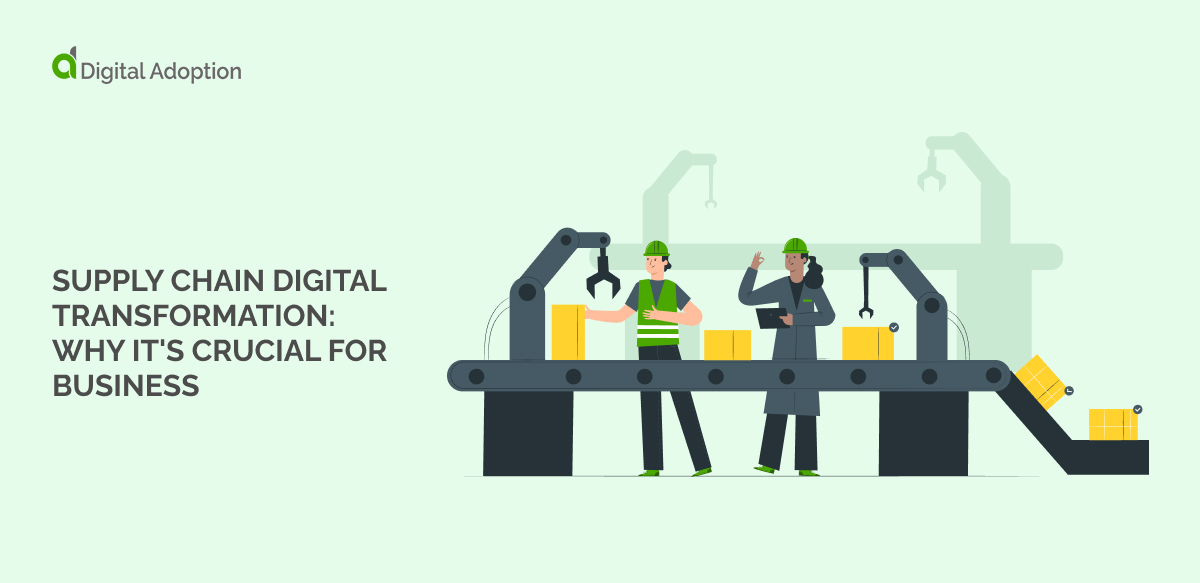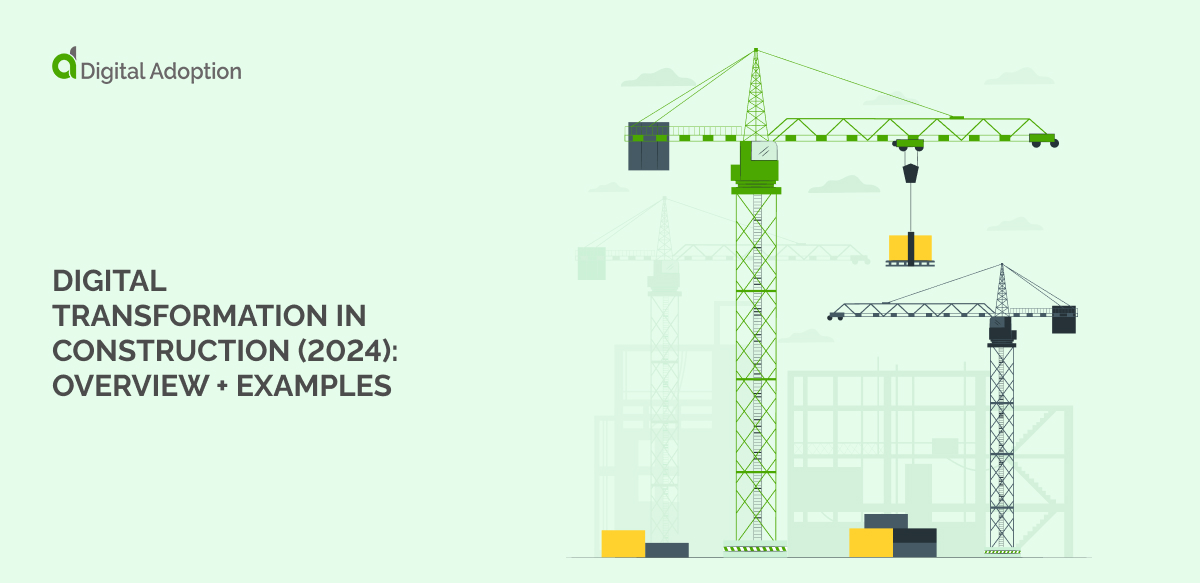Why are businesses experiencing a digital transformation?
Since so many organizations are undergoing transformation in the modern economy, this question is top-of-mind for many business professionals.
Many industry experts strongly advocate digital transformation and digital adoption.
But before learning how to transform, it is critical to understand why businesses are undergoing digital transformation.
Below, we’ll learn:
- What digital transformation is
- The role of digital disruption in the digital economy
- Why businesses are experiencing digital transformation
- What digital transformation entails
Let’s start by understanding the most fundamental drivers of digital transformation.
Why Are Businesses Experiencing a Digital Transformation?
Below, we will explore how innovation leads to disruption, which in turn leads to transformation and a panoply of other economic effects.
Digital innovation leads to digital disruption
Innovations in digital technology can have significant effects on individual businesses, as well as on marketplaces, industries, and entire economies.
Digital innovation, in other words, can cause a number of digital disruptions, including:
- Technological disruptions. A new technology is considered disruptive if it significantly changes the way businesses or industries operate. It can also be considered disruptive if it dramatically impacts consumer behavior.
- Marketplace disruptions. When disruptive technology alters the way an industry or marketplace operates, then these marketplace disruptions ripple out to affect businesses and individuals within that market, as well as other connected marketplaces.
- Disruptions in value chains. Value chains and supply chains can also feel the effects of such disruptions. Although changing an entire supply chain is certainly more challenging than changing an individual business, the impacts on one link do have an impact on the other members of the chain.
- Differences in customer expectations. New technology can also drastically affect customers’ demands and expectations. If a new and significantly improved smartphone hits the market, for example, people will quickly expect competitors to keep pace. And those businesses that can’t keep up will quickly lose ground to companies that can.
- Changes to business models. New technology can result in staggering performance gains, massive efficiency improvements, and brand new possibilities that never existed before. These innovations can completely transform the way an organization functions, which can drive organizational changes that affect business processes, revenue models, and more.
These and other disruptions inevitably pressure organizations, people, and mindsets – among other things – to change.
One result of technological advancement and disruption is the pervasive wave of digital transformation that affects businesses of every scale.
Digital disruption leads to digital transformation
When digital technology is creating a variety of disruptions in virtually every industry and at every level, adaptation is not an option – it is a necessity.
To survive, compete, or even dominate in their market, organizations must undergo a variety of organizational changes and transformations.
Digital transformation can involve changes to:
- Business structures
- Revenue models
- Marketplaces
- Business processes
- Organizational cultures
- Value delivery systems
…and more.
Because each industry and business is affected differently – and because each business will make its own unique set of choices – the precise nature of digital transformations vary.
However, due to these changes, we are beginning to see certain patterns emerging and reshaping business environments at both the global and local levels.
Digital transformation leads to…
It is difficult to predict with any certainty where the digital revolution will take us.
But today, there are a number of emerging trends that can help guide organizations when it comes to deciding the course that their digital transformations will take.
These include, for instance:
- Continuous organizational change. Since the digital revolution is far from over, digital disruption and transformation have yet to end. This means that organizations must be undergoing continuous change in order to keep pace with the shifting digital ecosystem.
- Perpetual learning. Continual change means perpetual learning for employees. New products are released daily, existing products are regularly updated, and employees who switch jobs must learn entirely new workflows. This requires that the workforce perpetually learns new skills. At the same time, organizations must evolve their employee training to keep up.
- New business models. An entirely new economic landscape has arisen from digital technology, unveiling many new possibilities and a range of new potential business models. Airbnb, for instance, is one of many organizations that leveraged the possibilities of the internet to enable individual home owners to earn income by renting out their property.
- Changes to customer expectations. As mentioned above, when a new and improved product hits the marketplace, customers’ expectations go up. Today, the digital customer experience continues to improve, thanks to ever-increasing investments from businesses. This process continues to raise the bar when it comes to user experience design.
Given the accelerating pace of digital adoption and change – and the emergence of trends such as these – organizations should seriously examine how digital disruption and transformation will impact their business.
After all, the slower that organizations adapt, the more difficult it will be for them to survive and thrive in the coming years and decades.













